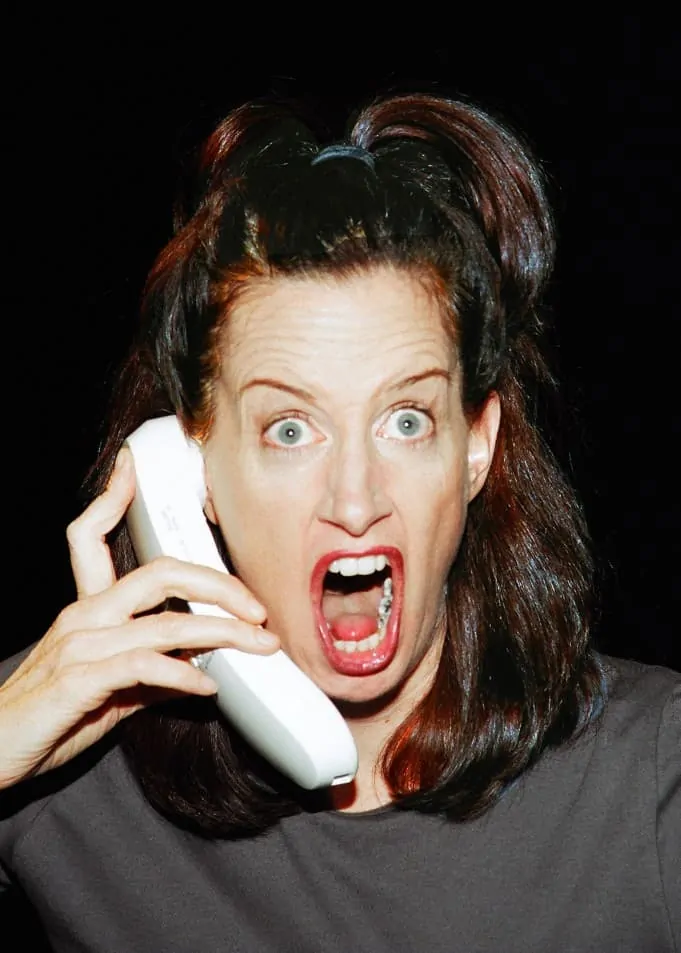Ann Randolph’s greatest strength as a performer is her utter willingness to look foolish. In Loveland, her alter ego Franny dances awkwardly, speaks nasally, and says whatever she happens to be thinking—even if that’s recounting her experiences masturbating in massage chairs at Whole Foods. Franny’s vocation and “special talent” is the invented art form “facial gesturing to sound,” which Randolph hilariously demonstrates for the residents of her mother’s nursing home. The comedic highlight of the show is Franny’s second act at the home, where she plays drone music and sings, “Listen to the drone; it’ll help you die. What’re you hanging on for? Take your last breath now…” She invites the audience to join her. (And they did, exuberantly.)
Despite this façade of enlightenment, Franny is not prepared for the reality of death. Through a series of flashback vignettes, Randolph sets up a poignant situation: Franny is on an airplane home to Loveland, Ohio, with her mother’s ashes in a suitcase in the compartment above her seat. Franny alternates between her natural exuberance—writing an innuendo-filled love letter to the pilot and and fantasizing about bad-airplane-pun-filled sex—and struggling to hold herself together emotionally after the loss of her mother. Even her darker moments are funny. She recalls the inappropriateness of the nursing home’s hold music (Mozart’s Requiem) and recoils in horror at the funeral parlor saleslady’s suggestion of a cremation necklace. The many short scenes come together during the climactic ending. I won’t spoil it, but I will say that it’s just the right mix of comedy, tragedy, and absurdity.
Randolph’s writing is spot-on.
Randolph’s writing is spot-on, with each character sounding believably natural but incomparably unique. Randolph is also a master of quickly changing her voice, posture, and gestures, so it’s always clear who is speaking. I especially loved the conversations between Franny and her mother, two people who shared mannerisms and interests but were wonderfully distinct. Randolph is so energetic and always-on that Franny, her mother, their social worker, her meditation teacher, and the airline stewardess all came across as oddballs. A little more normality and calm among the cast would have provided a nice counterpoint to Franny’s larger-than-life character.
I will readily admit that I wasn’t quite the target audience for this performance. I suspect it resonated much more with audience members who had lost parents or who had relatives with the oversized mid-Western personalities of the show’s characters. Other people often laughed uproariously while I sat stony-faced, not quite caught up in Randolph’s silly routines.
To me, the most effective part of the evening was the Good Grief workshop that followed the performance—a new addition to the show since its last San Francisco run. The audience was invited to stay and spend time thinking and writing about their experiences of loss. Some brave souls then read their reflections, which were consistently both heart-breaking and poetic. Randolph also provided small cardboard coffins as containers for our writing, or simply to decorate. (Randolph’s own full-size decorated coffin was on display in the room next door to the theater.)
While I did not personally experience them, there were plenty of laughter and tears at Loveland. The show was enjoyable for me, and you might even find it profoundly moving.
3/5 — “Engaging”



